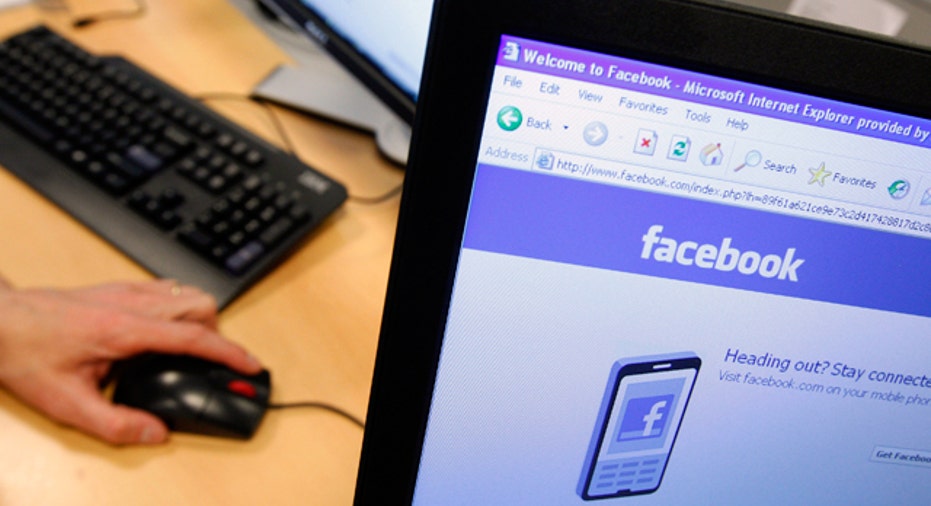Can Using Social Media Cause Your Insurance Rates to Soar?

Your friends aren't the only ones interested in what you're saying on Facebook and Twitter. Insurance companies are exploring how to use social media to learn more about you.
Does that mean your car insurance rates will go up if you post about your interest in drag racing? Will your home insurance premium rise if you tweet about your vacation and let everyone know that no one's home?
No - not yet, anyway.
But insurance companies already check social media sites to investigate suspicious or expensive claims. And technology companies are building tools that will help insurers mine social media data to improve marketing and perhaps one day help price policies.
Car and home insurance claims
With millions of such car insurance and home insurance claims filed each year, "insurers can't check everybody's Facebook page," says Peter Foley, vice president for claims administration for the American Insurance Association. "It's not a very effective tool."
But they may check social media sites if there are signs of fraud, he says.
"It's now common practice to use social media for investigating suspect claims," says Craig Beattie, a London-based insurance analyst for Celent, a research and consulting firm.
The use of social media is less developed for other purposes.
"At present, it's a fairly novel thing, and people (in the insurance industry) are playing with it," Beattie says.
Finding information on Twitter and Facebook is still a manual process of typing names and searching for the right people to match.
"Right now it's an expensive exercise," Beattie says. "I'd hate to think how many John Smiths are on Facebook now."
Sleuthing on Facebook
Still, some experts urge consumers to be cautious when using social media. Disability insurance attorney Edward Comitz, of Comitz Beethe, a Scottsdale, Ariz., law firm, has many physician clients who have purchased own-occupation policies. These policies pay out when a disability prevents the policyholder from performing his or her current occupation, even if the person can perform other types of jobs.
Claims on these types of policies are expensive. Insurers - already under financial pressure - have great incentive to find reasons to deny them, Comitz says. Besides traditional tactics such as video surveillance, insurers now check social media sites to find potential evidence that a claim is illegitimate.
"I advise all my clients not to use Facebook, and if they're using Facebook to use it with the highest privacy settings," he says.
A picture of yourself smiling with friends at a party might seem innocent. But the insurance company could use the photo as evidence you are not as disabled as you claim, Comitz says. Such a picture also could sway a jury to rule against you.
"Jurors tend to think of disability as a state of total helplessness," Comitz says. "But even the most disabled person has moments of joy in life, and if that's posted it can be misconstrued."
Insurers can't see pages you've made private, but someone could still find photos of you on a friend's public page. And your right to privacy could go out the window if you're involved in a lawsuit with an insurer. Courts have ruled in some cases that private social media postings are discoverable.
Future of social media and insurance
Right now, vendors are building tools to automate the process of searching social media. Such technology would allow insurers and other companies to more easily mine data from Facebook, Twitter and other sites.
What will insurers do with the information? That's the big question.
Beattie says one possibility would be to use the information to create a "social networking score." This could help insurers gauge risk, just as companies use credit scores to help determine the risk a policyholder represents.
"That's not being done today, and I haven't found any insurer that admits to doing it," he says. "I think that would create a public backlash in the industry, and rightly so because it's a little invasive."
Social networking data also may help insurers learn more about their consumers, says Arun Prasad, a senior manager of Deloitte Consulting LLP. For instance, insurers could pinpoint the common interests of high-net-worth people in their 40s who live in a certain geographical region.
Such information could help companies better target their marketing and communication efforts. Insurers may also monitor what consumers are saying about their companies and use social networking to engage with them.
"It's cheaper and faster to ask a group of people if they're interested in participating in a Facebook discussion than getting 50 people to come into a conference room," Prasad says.
Related topics:
The original article can be found at Insurance.com:Can using social media cause your insurance rates to soar?
Related Links



















